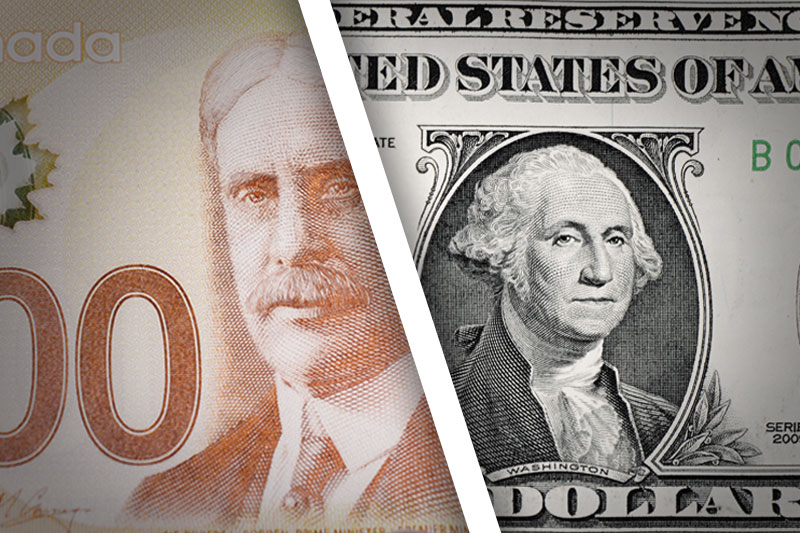Investing.com - The U.S. dollar rose to session highs against the Canadian dollar on Monday amid concerns over the outlook for the Canadian economy following Friday’s disappointing employment and trade data.
USD/CAD hit 1.0199 during early U.S. trade, the session high; the pair subsequently consolidated at 1.0197, gaining 0.24%.
The pair was likely to find support at 1.0154, the session low and resistance at 1.0234, Friday’s high and a two-week high.
Official data on Friday showed that the Canadian economy shed 54,400 jobs in March, compared to expectations for a gain of 9,000. The country’s unemployment rate unexpectedly rose to 7.2% from 7.0% in February.
A separate report showed that Canada’s trade deficit unexpectedly widened to CAD1.0 billion in February from an upwardly revised deficit of CAD746 million in January as metal exports declined.
In the U.S., data on Friday showed that the economy added fewer than expected jobs in March, raising doubts over the strength of the U.S. economic recovery.
The U.S. economy added 88,000 jobs last month, the smallest increase since June and far below forecasts for an increase of 200,000.
The U.S. unemployment rate ticked down to 7.6% from 7.7% in February, but the decline was due in large part to more people dropping out of the work force.
The loonie, as the Canadian dollar is also known, was sharply higher against the yen, with CAD/JPY advancing 0.76% to 96.59 after the Bank of Japan embarked on its new monetary stimulus plan.
The BoJ conducted its first government bond purchasing operation on Monday, purchasing JPY1.2 trillion of Japanese government bonds maturing in five years or more.
Last week the BoJ said it plans to double its asset purchase program over the next two years and extend the maturities of the bonds it purchases in a bid to achieve its 2% inflation target.
USD/CAD hit 1.0199 during early U.S. trade, the session high; the pair subsequently consolidated at 1.0197, gaining 0.24%.
The pair was likely to find support at 1.0154, the session low and resistance at 1.0234, Friday’s high and a two-week high.
Official data on Friday showed that the Canadian economy shed 54,400 jobs in March, compared to expectations for a gain of 9,000. The country’s unemployment rate unexpectedly rose to 7.2% from 7.0% in February.
A separate report showed that Canada’s trade deficit unexpectedly widened to CAD1.0 billion in February from an upwardly revised deficit of CAD746 million in January as metal exports declined.
In the U.S., data on Friday showed that the economy added fewer than expected jobs in March, raising doubts over the strength of the U.S. economic recovery.
The U.S. economy added 88,000 jobs last month, the smallest increase since June and far below forecasts for an increase of 200,000.
The U.S. unemployment rate ticked down to 7.6% from 7.7% in February, but the decline was due in large part to more people dropping out of the work force.
The loonie, as the Canadian dollar is also known, was sharply higher against the yen, with CAD/JPY advancing 0.76% to 96.59 after the Bank of Japan embarked on its new monetary stimulus plan.
The BoJ conducted its first government bond purchasing operation on Monday, purchasing JPY1.2 trillion of Japanese government bonds maturing in five years or more.
Last week the BoJ said it plans to double its asset purchase program over the next two years and extend the maturities of the bonds it purchases in a bid to achieve its 2% inflation target.
